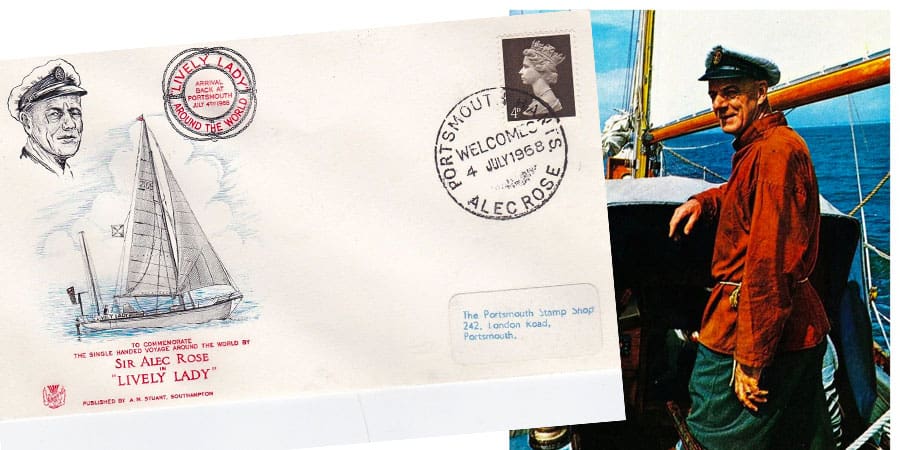Sir Alec Rose (13 July 1908 – 11 January 1991) was a fruit merchant in England who after the World War II developed a passion for single-handed sailing.
When Rose heard that Francis Chichester intended to sail single-handedly around the world, he was keen to compete. He attempted to start his journey at the same time as Chichester in 1966, but a collision off Ushant meant he had to postpone the departure of Lively Lady.
Who was Alec Rose
The circumnavigation began on 16 July 1967. On 17 December, after 155 days and 14,500 miles, he arrived in Melbourne where he met his son who lived there. Among the people who came to watch Rose’s arrival was Prime Minister Harold Holt, who disappeared later the same day after going for a swim. Rose stopped once more in New Zealand to repair a damaged mast.
The voyage was closely followed by the international press and Rose’s landfall at 12.33pm in Southsea, Portsmouth on 4 July 1968, 354 days later, was met by cheering crowds of hundreds of thousands. It was 10 days before his 60th birthday. The following day he was knighted by Queen Elizabeth II.
In 1973 Rose was given the honour of firing the starting gun for the first Whitbread Round the World Race. On 17 May 1975, he opened 5th Littlehampton Sea Scouts’ HQ Gordon Hall in Lineside Way, Littlehampton, West Sussex.
Rose’s voyages are detailed in his book My Lively Lady. He wrote a children’s version, Around the world with Lively Lady (1968) and another book My favourite tales of the sea (1969).
Following his circumnavigation, Rose remained active in the sailing community, sharing his experiences through lectures and writing. He passed away on January 11, 1991, leaving behind a legacy of courage, perseverance, and love for the sea. Alec Rose’s solo voyage stands as a testament to the indomitable spirit of adventure and the human capacity to overcome challenges in pursuit of a dream.
